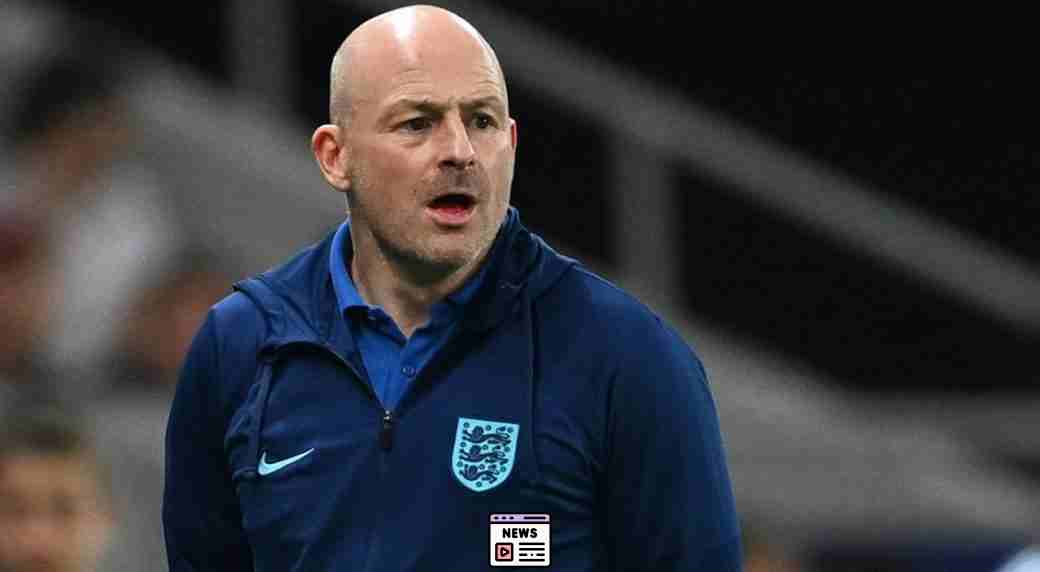Updated on: October 8, 2024 12:22 pm GMT
Lee Carsley’s Stance on National Anthems Sparks Discussion Ahead of England-Ireland Clash
As England prepares to face the Republic of Ireland in Dublin for the Nations League, a decision by interim manager Lee Carsley regarding national anthems has generated noteworthy attention. Carsley, who earned 40 caps for Ireland during his playing career, has opted not to sing the British national anthem before matches, a choice that aligns with his long-standing focus on the game itself rather than the pre-match formalities.
Background on Lee Carsley
Lee Carsley, aged 50, was appointed as England’s interim manager following the resignation of Gareth Southgate in August. This match against Ireland is particularly significant for Carsley, as he returns to the country where he represented the national team as a player. His tenure is not only a test of capability in a leadership role but also a reflection of his appreciation for the cultural significance of both national anthems.
Reflections on National Anthems
In explaining his choice, Carsley emphasized that he has never sung the Irish anthem during his playing days or the British anthem while managing England’s Under-21 team. “This is something that I always struggled with when I was playing for Ireland,” Carsley stated. He highlighted the focus required during the time leading up to kick-off, expressing a desire to remain mentally engaged, stating, “I was always really focused on the game and my first actions of the game.”
Carsley asserted his respect for both national anthems, acknowledging their importance to supporters. However, he believes that having a singular focus on the match itself is paramount. As he transitions to this new role, his ability to balance personal beliefs with respect for the traditions of international football will be under scrutiny.
Historical Context and Reactions
The topic of whether players and managers sing the national anthem has been a point of contention in football for years. During Euro 2024, for instance, every member of England’s starting lineup sang “God Save the King.” Yet, some players have faced scrutiny for their choices regarding the anthem. For example, Trent Alexander-Arnold was criticized in 2022 for not singing prior to a match against Hungary, and even former England captain Wayne Rooney regularly chose not to sing the anthem, a practice backed by the Football Association at the time. An FA spokesperson noted, “Whether a player wishes to sing the national anthem or not is purely a personal choice.”
In stark contrast to Carsley’s choice, previous managers like Southgate were known for enthusiastically singing the anthem. Southgate’s passion stood out, but his predecessor Fabio Capello famously refrained from singing, stating that it felt “wrong” to sing another country’s anthem, emphasizing personal principles over tradition.
New Leadership in International Football
Both England and Ireland find themselves led by new figures as they meet on the pitch; England under Carsley and Ireland under Heimir Hallgrímsson. Hallgrímsson, who previously partnered in leading Iceland to historic victories, brings his own unique perspective to this high-stakes encounter, especially as he aims to establish his mark on the international stage.
Carsley will have to formulate strategies to lead a talented squad that includes established players like Harry Kane and rising stars from his Under-21 experience. Despite missing key players such as Jude Bellingham, Carsley retains a formidable roster with the potential to make a strong impact against Ireland.
National Anthems in the Sports Arena
The significance of national anthems extends beyond mere tradition. In football and rugby, singing national anthems can serve as a pre-match ritual, fostering a sense of unity among players and supporters alike. Singers often express pride, which translates into motivation on the field. Yet, in other sports such as Formula 1 or athletics, national anthems typically play a more reflective role, being performed only after victories, imparting a different tone to the experience.
For many athletes, the decision to participate in these rituals is intensely personal, reflecting their values and connections to their nations. Across various sports, reactions to singing or not singing have evoked emotions from pride to disappointment, emphasizing the anthem’s role both as a cultural touchstone and a source of controversy.
Concurrently, the Upcoming Match
As the clock counts down to kick-off in Dublin, anticipation builds for this match steeped in history and rivalry. The meeting is as much about competition as it is about the narratives that surround it. Both teams will walk onto the pitch with expectations high, each with new leadership and fresh strategies.
Lee Carsley, having navigated controversy surrounding his approach to national anthems, faces not only the challenge of consolidating England’s performance but also responding to broader discussions around identity and tradition in sport. The match not only tests the current capabilities of both teams but also illustrates how the traditions of the past continue to influence contemporary expectations.
Team Preparations and Insights
As players finalize their training routines ahead of the match, strategic formations and individual contributions will play critical roles in determining the outcome. Carsley’s management style has emphasized creativity and innovation, which could reflect a significant shift in how the Three Lions approach international competition going forward.
The anticipation surrounding Carsley’s leadership will also focus on how he can leverage players’ strengths dynamically while fostering an atmosphere conducive to success. Ireland, under Hallgrímsson, will undoubtedly look to assert themselves, making this encounter a compelling examination of both teams’ tactical acumen and depth.
As the big game gets closer, everyone in the football world is excited to see what will happen. They are not just curious about the score, but also about the decisions that Carsley makes during the match. People will keep talking about the national anthems, and those thoughts will stay with players, fans, and commentators even after the game is over.
